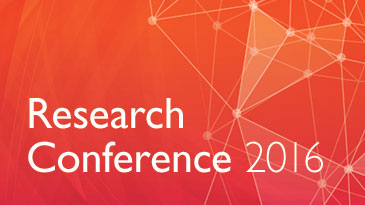
Location
Mezzanine M1
Start Date
8-8-2016 2:45 PM
End Date
8-8-2016 4:00 PM
Subjects
STEM education, Indigenous education, Aboriginal students, Torres Strait Islander students, Mathematics attitudes, Science interests, Cultural identity, Cultural context, Student engagement
Abstract
Achievement disparities between Indigenous students and their non-Indigenous peers in education continue to be documented across the globe. Over the past three decades, there has been a significant amount of writing on Indigenous methodologies, epistemology and, to a lesser extent, pedagogies. All are crucial in the lifelong process of teaching and learning – the nature of knowledge, how it is gained, and the transmission of it. However, much of this work is contested or seen as inappropriate or irrelevant in STEM education. Indigenous students do not perceive STEM subjects as being welcoming. As STEM educators, we need to take a broader perspective that encompasses the complex interaction of family, social, cultural, educational, economic and political contexts, and to take into account the nature of knowledge and the importance of cultural identity to Indigenous communities. PISA data shows that Indigenous students have an interest in science that is equal to that of their non-Indigenous peers. So the questions we need to ask are: Why have STEM educators and schools not been able to capitalise on this interest? What makes for effective STEM teaching for Indigenous students? What makes for quality STEM teaching for Indigenous students? What makes for successful learning for Indigenous students in STEM subjects? This presentation will debate current approaches and ask what more needs to be done.
Recommended Citation
McKinley, E. (2016, August 08). STEM and Indigenous learners [Paper presentation]. Research Conference 2016 - Improving STEM Learning : What will it take?. https://research.acer.edu.au/research_conference/RC2016/8august/14
Copyright Statement
Copyright Australian Council for Educational Research 2016
Place of Publication
Melbourne Vic
Publisher
Australian Council for Educational Research (ACER)
ISBN
9781742864075
Included in
STEM and Indigenous learners
Mezzanine M1
Achievement disparities between Indigenous students and their non-Indigenous peers in education continue to be documented across the globe. Over the past three decades, there has been a significant amount of writing on Indigenous methodologies, epistemology and, to a lesser extent, pedagogies. All are crucial in the lifelong process of teaching and learning – the nature of knowledge, how it is gained, and the transmission of it. However, much of this work is contested or seen as inappropriate or irrelevant in STEM education. Indigenous students do not perceive STEM subjects as being welcoming. As STEM educators, we need to take a broader perspective that encompasses the complex interaction of family, social, cultural, educational, economic and political contexts, and to take into account the nature of knowledge and the importance of cultural identity to Indigenous communities. PISA data shows that Indigenous students have an interest in science that is equal to that of their non-Indigenous peers. So the questions we need to ask are: Why have STEM educators and schools not been able to capitalise on this interest? What makes for effective STEM teaching for Indigenous students? What makes for quality STEM teaching for Indigenous students? What makes for successful learning for Indigenous students in STEM subjects? This presentation will debate current approaches and ask what more needs to be done.


Comments
Concurrent session Block 2